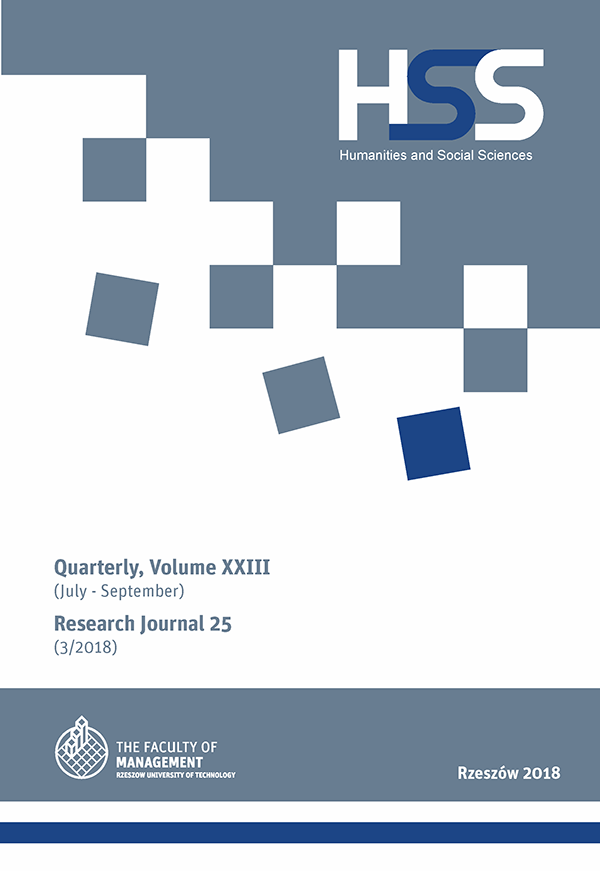Abstract
A man as a conscious and rational being tries to define his place in the universe, himself in relation to the cosmos, absolute, logos and nature. Nowadays, the issue of our relations with animals is becoming particularly important. Historian Dominick LaCapra even stated that the 21st century would be the age of animals[1]. A man uses animals in different ways: he eats their meat, apparels in their skin, uses them as a train force, plays with them at a cost in the circus and experiments in laboratories. It has been this way for centuries, but what seems crucial is that for some time the farms have become massive laboratories far too saturated with the suffering of animals, and the man, despite constant development, has changed little in his relation to animals. The aim of the paper is a brief description of the historical aspects of this phenomenon based on the views of philosophers over the past two thousand years. The analysis begins with the views of ancient philosophers such as Anaxagoras, Pythagoras and Aristotle, through the key concepts of medieval philosophers, first and foremost St. Augustine and Saint Thomas to modern times where attention was drawn to thinkers such as: Leonardo da Vinci, Michel Montaigne, Rene Descartes, Baruch Spinoza, La Mettrie, John Locke, Gottfried Wilhelm Leibniz, Jean Jacques Rousseau, Immanuel Kant, David Hume, Artur Schopenhauer or Jeremy Bentham. The considerations are concluded with a brief summary in the form of Darwin's concept.
References
Bekoff M., Pierce J., Dzika sprawiedliwość, Kraków 2018.
Bentham J., Wprowadzenie do zasad moralności i prawodawstwa, Warszawa 1958.
DeGrazia D., Prawa zwierząt. Bardzo krótkie wprowadzenie, Kraków 2014.
Descartes R., Rozprawa o metodzie…, Kraków 2002.
Gelb M.J., Myśleć jak Leonardo da Vinci, Poznań 2017.
Hume D., Traktat o naturze ludzkiej, Warszawa 1963.
Kant I., Uzasadnienie metafizyki moralności, Warszawa 1953.
Leibniz G.W., Nowe rozważania dotyczące rozumu ludzkiego, Warszawa 1955.
Locke J., Rozważania dotyczące rozumu ludzkiego, Warszawa 1955.
McCartney P., McCartney S., McCartney M., Poniedziałki bez mięs, Poznań 2012.
Montaigne M., Próby, Warszawa 2009.
Schopenhauer A, O wolności ludzkiej woli, Kraków 2004.
Schopenhauer A., O podstawie moralności, Warszawa 2009.
Singer P., Wyzwolenie zwierząt, PWN, Warszawa 2004.
Singer P., Zwierzęta i ludzie jako istoty równe, Etyka nr 18, 1980.
Spinoza B., Traktaty. Etyka, Warszawa 2009.
Stecko J., Homo crudelis – koncepcja natury ludzkiej Mariana Zdziechowskiego w zderzeniu z czasami współczesnymi, Zeszyty Naukowe Politechniki Rzeszowskiej, seria: „Ekonomia i Nauki Humanistyczne” nr 1/2011.
Ślipko T., Bioetyka, Kraków 2009.
Św. Augustyn, Państwo Boże, Warszawa 2010.
Vardy P., Etyka, poglądy i problemy, Zysk i spółka, Poznań 1995.
Zarosa U., Status moralny zwierząt, Warszawa 2016.
Zdziechowski M., O okrucieństwie, Kraków 1993.
http://niechcianeizapomniane.org/filozofia-praw-zwierzat/ [23.12.2017].
https://czarnaowca.org/zwierzeta/co-sie-dzieje-ze-zwierzetami/eksperymenty-na-zwierzetach/ [23.12.2017].
https://swietostworzenia.pl/czytelnia/16-ekologia-franciszkanska/122-ekologiczny-dekalog-sw-franciszka-z-asyzu [23.12.2017].

